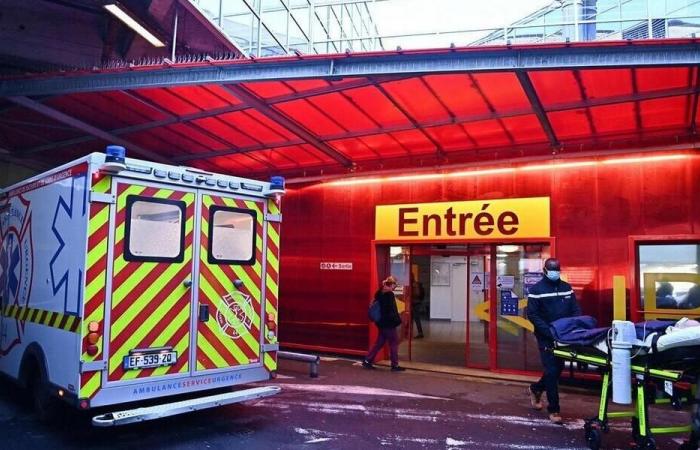
The measure is being calibrated this Thursday, January 9. After the Nantes University Hospital and the Saint-Nazaire hospital, the Regional Health Agency is about to activate, within a short period of time, the white plan for all health establishments in the Loire-Atlantique department with a emergency service. This therefore concerns, in addition to the two cities mentioned, the public hospitals of Ancenis and Châteaubriant, as well as the private hospital Confluent, in Rezé.
At the same time, and this is the major information, access to adult and pediatric emergencies in Loire-Atlantique will be limited at night, from Monday January 13. Concretely, it will no longer be possible to spontaneously present yourself to the emergency room. You will have to go through 15 or be brought by the firefighters, paramedics, Samu or be referred by a health professional.
A revolution
This new organization is a revolution. Until now, access to emergencies is free 24 hours a day. And the population goes there directly if they consider it necessary. From now on, you will have to call the Samu (via 15 or 116 117) who will direct the patient, either to the emergency room, or to an on-call consultation for an unscheduled consultation or simply provide them with medical advice.
The goal is to ensure that emergency rooms are reserved for people who need urgent care.
In the event that a patient presents spontaneously, he or she will be treated immediately in the event of a life-threatening emergency. (1). Otherwise, it will be put in line with the regulation of unscheduled care. However, there is one exception to the rule: vulnerable people. Homeless people, unaccompanied minors, people suffering from psychiatric problems will have access to emergencies, even in the absence of a life-threatening emergency.
This system will be tested for three months, before an initial assessment.
(1) Vital emergencies: respiratory, circulatory, neurological distress; serious traumatic injuries; high kinetic public road accident.





